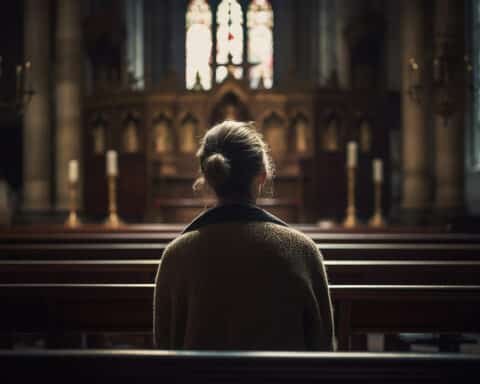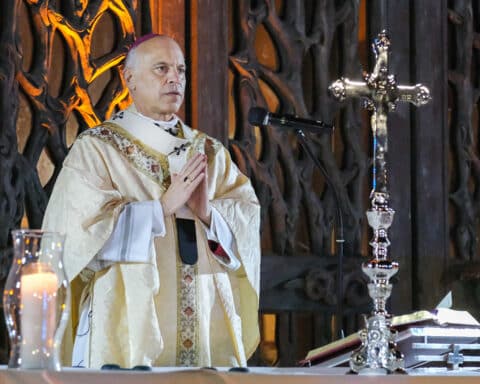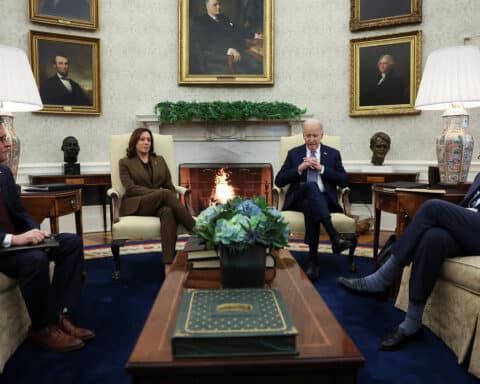“Who wants to be painted as being against human rights? Especially when the ‘who’ is the Church — one of the strongest advocates of human rights and dignity on the planet. It is critical, then, that the umbrella of ‘human rights’ be understood within a Catholic context.”
It’s far too early to be weighing in on the 2020 presidential election. After all, we still have more than a year of madness to go before we cast ballots next fall.
But ignoring Beto O’Rourke’s comments about revoking the tax exemption status of churches that do not support same-sex marriage misses a prime opportunity for clarifying comments.
In case you did not see or hear about what happened, on Thursday, Oct. 10, CNN hosted a town hall on LGBTQ issues during which moderator Don Lemon asked the provocative question: “Do you think religious institutions like colleges, churches, charities — should they lose their tax-exempt status if they oppose same-sex marriage?”
“Yes,” O’Rourke answered immediately in front of a seemingly surprised, yet pleased, audience. “There can be no reward, no benefit, no tax break, for anyone, any institution, any organization in America, that denies the full human rights, and the full civil rights, of every single one of us. So as president, we’re going to make that a priority. And we are going to stop those who are infringing upon the human rights of our fellow Americans.”
Let’s put this into context. It is highly unlikely that O’Rourke will secure the Democratic nomination. It is also highly unlikely, at least in this moment in our history, that religious organizations will lose their tax-exempt status. In fact, O’Rourke’s response seemed so far afield that other candidates, including Elizabeth Warren and Pete Buttigieg, have taken pains to distance themselves from it.
“The idea that you’re going to strip churches of their tax-exempt status if they haven’t found their way toward blessing same-sex marriage — I’m not sure he understood the implications of what he was saying,” Buttigieg, a practicing homosexual, said of O’Rourke during a CNN interview.
A spokewoman for Warren said that “religious institutions in America have long been free to determine their own beliefs and practices, and she does not think we should require them to conduct same-sex marriages in order to maintain their tax exempt status.”
All well and good. The free exercise clause of the First Amendment seems, currently, to go relatively unchallenged. Justices of the Supreme Court, too, have reminded us that “the power to tax involves the power to destroy” (McCulloch v. Maryland, 1819), thereby keeping the separation of church and state firmly intact.
For now. But the language, centered on “human rights,” adopted by O’Rourke and advocated for by LGBTQ activists, is noteworthy because it is intentionally provocative. Who wants to be painted as being against human rights? Especially when the “who” is the Church — one of the strongest advocates of human rights and dignity on the planet.
It is critical, then, that the umbrella of “human rights” be understood within a Catholic context — very helpfully summed up in the Compendium of the Social Doctrine of the Church. “The roots of human rights,” it says, “are to be found in the dignity that belongs to each human being.” At the same time, it makes clear: “The ultimate source of human rights is not found in the mere will of human beings, in the reality of the State, in public powers, but in man himself and in God his Creator” (No. 153). Human rights flow from God, not from human beings or government. They are based upon reason, natural law, and revealed to us in the person of Christ.
Pope St. John Paul II, in his 1991 encyclical “Centesimus Annus,” highlighted the most fundamental human rights, which include, in sum, the right to life, to seek the truth, to live in a united family and moral environment, to work and to establish a family “through the responsible exercise of one’s sexuality.”
“The source and synthesis of these rights,” he wrote, “is religious freedom, understood as the right to live in the truth of one’s faith and in conformity with one’s transcendent dignity as a person” (No. 47).
O’Rourke’s assertion that religious organizations that don’t support same-sex marriage are somehow denying human rights, then, is wrong in a manner that is twofold: first, because same-sex marriage is not a human right defined by God; and second, because religious freedom — the right “to live in the truth of one’s faith” — is.
Finally, we would be remiss if we didn’t point out the irony that many of those who claim to advocate so strongly for the human rights of some so thoroughly ignore the human rights of others — that is, the most basic of human rights, the right to be born.
Our Sunday Visitor Editorial Board: Gretchen R. Crowe, Scott P. Richert, Scott Warden, York Young





